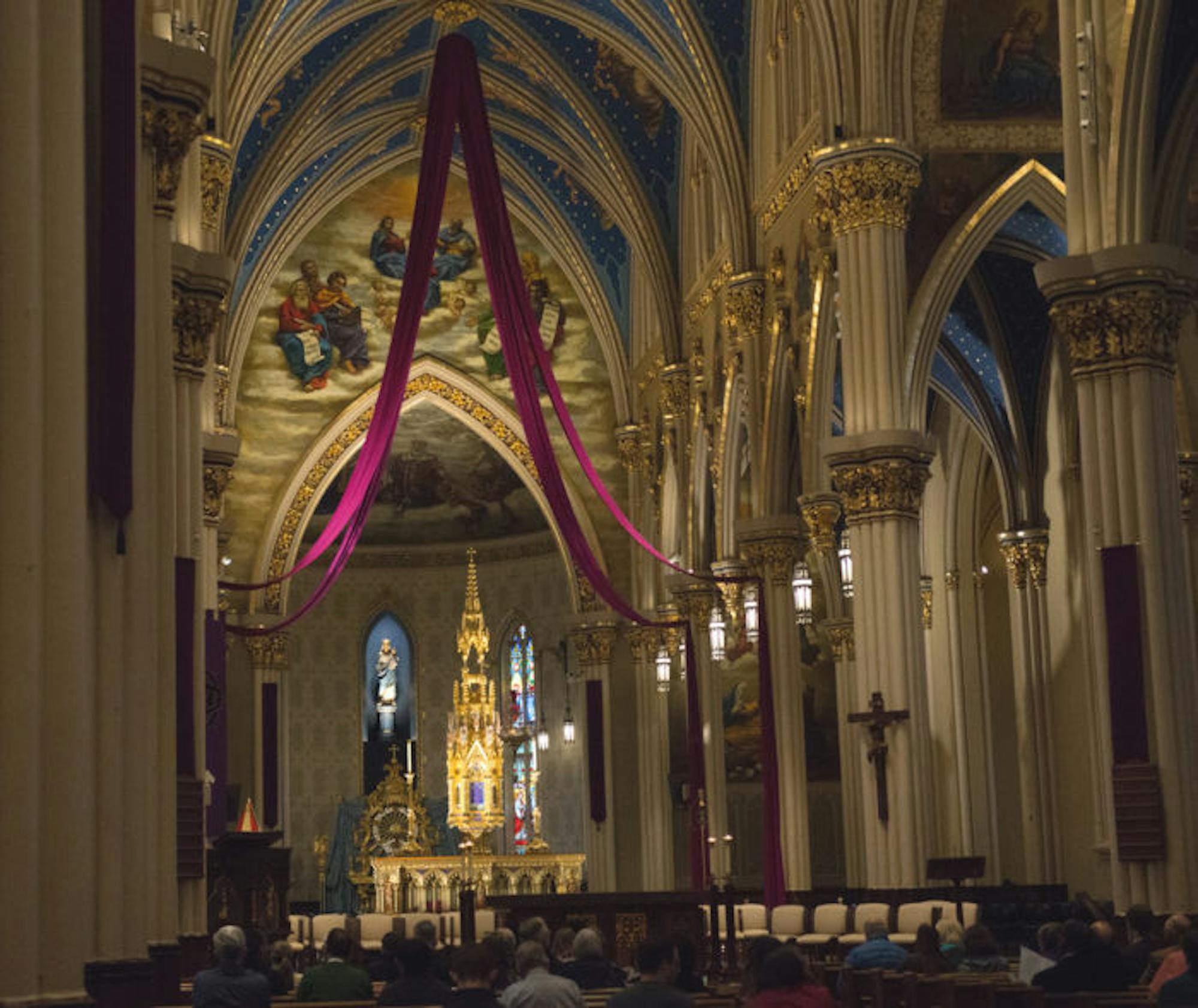Representatives of Christian faiths from around the world and members of the local community participated in an ecumenical prayer service at the Basilica of the Sacred Heart on Tuesday night to celebrate the University’s commitment to unity among Christians. The service was co-presided by representatives from the Presbyterian, Evangelical Lutheran, Roman Catholic, Episcopal and United Methodist Churches: Rev. Neil Arder, Rev. Maxwell Johnson, Fr. Gerry Olinger, Rev. Hugh Page and Rev. Anna Adams Petrin.
The service was attended by guests from the global religious community, including Rev. Chris Ferguson, general secretary of the World Communion of Reformed Churches, Rev. Josiah Idowu-Fearon, secretary general of the Anglican Communion, Rev. Martin Junge, general secretary of the Lutheran World Federation, Cardinal Kurt Koch, president of the Pontifical Council for Promoting Christian Unity and Rev. J.C. Park, president of the World Methodist Council.
In his sermon, Page, who serves as vice president and associate provost for Undergraduate Affairs, highlighted the stories of Richard Allen and Absalom Jones — both African Americans born into slavery who purchased their freedom — as models of ecumenical action for social change. Faced with racial discrimination at St. George’s Methodist Episcopal Church in Philadelphia, they formed the Free African Society and two separate churches — the African Episcopal Church and the African Methodist Episcopal Church, Page said.
“They engaged in prophet action and ecclesial re-envisioning by disaffiliating from St. George’s [Methodist Episcopal Church] in protest and resolving to invest their energy into nurturing a Free African Society and an independent church — institutions that could help ensure the sanctity of black life, challenge racialized notions of personhood [and] citizenship,” Page said. “Theirs was an ecumenical collaboration.”
According to Page, Jones and Allen “alter[ed] the American religious landscapes” and “redefined what it meant to be church” by working locally to create change and social uplift across denominational divides.
Page additionally spoke of the commonalities between people of Christian faiths, specifically their common mission.
“We are, when all is said and done, a community seeking to understand the breadth and the depth of [its] faith and its implications for our respective branches of the Christian family,” he said. “We are all attempting to get our hearts and our minds around what it means to be people of God.”
Page voiced a call to all Christians to echo the prophetic actions of Jones and Absalom by cultivating relationships to maintain unity and diversity simultaneously. These relationships will blossom to from a willingness to embrace a common relationship with God, he said.
“Our ability to enact the love that embodies the new commandment of this incarnate word is indeed our girt and our good news,” Page said.
Following the sermon, the co-presiders led a renewal of baptismal vows, a sprinkling rite to symbolize common baptism. Prayers of the faithful were presented by members of the Notre Dame community in different languages. Music for the service was provided by the Notre Dame Liturgical Choir.
A follow-up panel titled “From Conflict to Communion: The Future of Christians Together in the World” at will take place Thursday at 5 p.m. in the McKenna Hall Auditorium. Several senior leaders from different Christian denominations will speak and Notre Dame assistant professor of theology Neil Arner will moderate. The event is free and open to the public.













